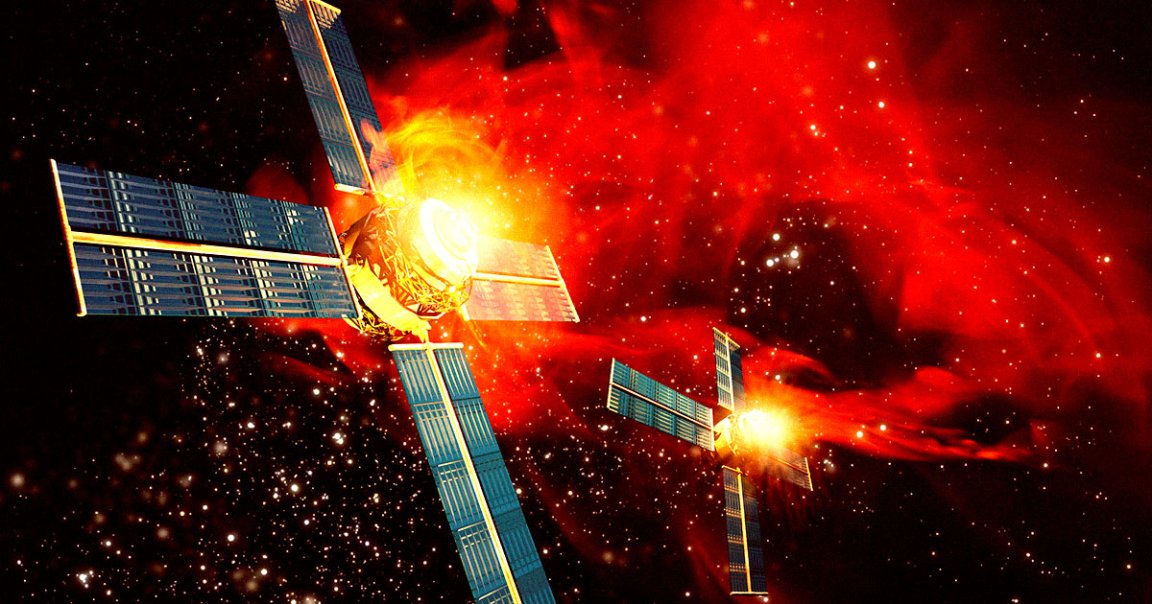
Cryptic Passage
This week, representative and chairman of the House Intelligence Community Michael Turner (R-OH) made cryptic comments calling for president Joe Biden to declassify information about a space-based nuclear weapon, warning of a “national security threat” that’s related to a “destabilizing foreign military capability.”
Sources told ABC News on Wednesday that the comments were likely related to secret Russian plans to launch a nuclear weapon into space that could be used to target satellites.
“We are going to work together to address this matter, as we do all sensitive matters that are classified,” House speaker Mike Johnson told reporters following Turner’s eyebrow-raising comments. “But we just want to assure everyone steady hands are at the wheel.”
The news is both vague and alarming, especially during a time of rising international tensions, both because satellite infrastructure is indeed vulnerable and because there’s long been a taboo against sending nuclear weapons to space.
“Ending the Space Treaty could open the floodgates for other countries to put nuclear weapons in space as well,” Steven Andreasen, a nuclear expert at the Humphrey School of Public Affairs, told the New York Times. “Once you have orbital nuclear weapons, you can use them for more than taking out satellites.”
Satellite Office
US lawmakers and their counterparts in Europe are becoming increasingly worried about a space-based nuclear weapon that could threaten US satellites.
If such a weapon were ever to be deployed, entire communication networks, both civilian and military, could be plunged into darkness.
Officials are now warning that the US simply doesn’t have a way to protect itself from such a weapon — highlighting a global space arms race that has been heating up over the years, especially following Russia’s invasion of Ukraine.
World powers, Russia and China in particular, have made significant strides in developing weapons capable of taking out adversary satellites. In 2021, for instance, Russia intentionally blew up one of its own retired satellites with a direct-ascent anti-satellite. China also conducted a similar test in 2007.
While the 1967 Outer Space Treaty, which Russia has signed, forbids all orbital nuclear weapons, Russia has increasingly chosen to opt out of other Cold War arms control treaties, as the NYT reports.
The Kremlin has dismissed this week’s comments, calling them a “malicious fabrication.”
More on anti-satellite weapons: Space Force Boss Says Weird New Weapons Are Headed to Orbit